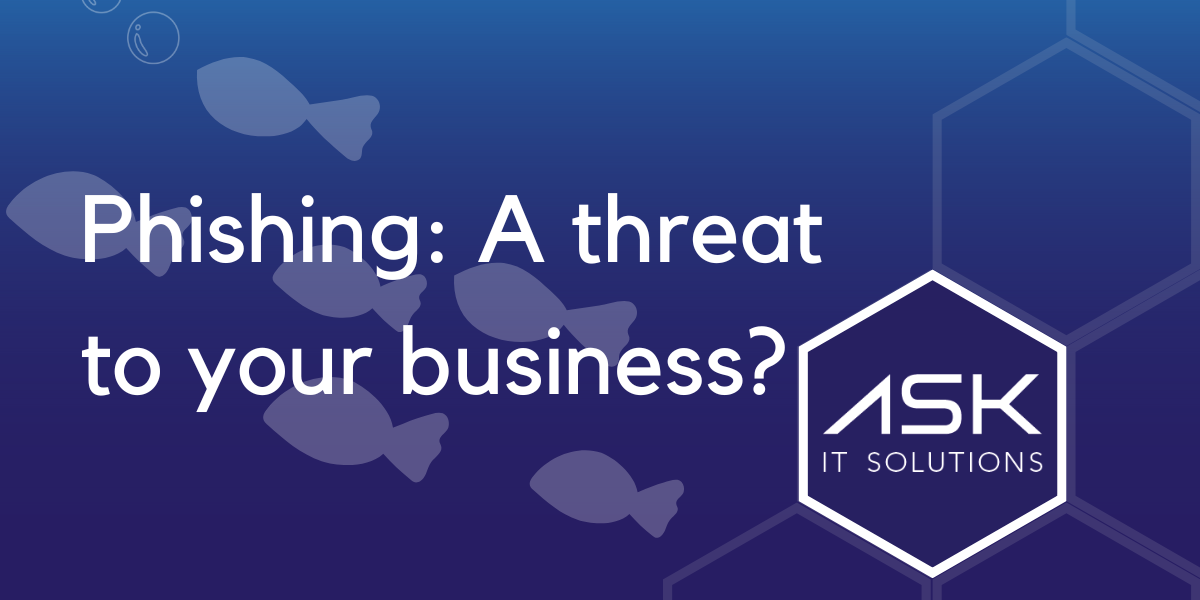What is phishing?
Phishing is a type of cyber attack that involves the use of fraudulent emails, text messages, or websites to deceive individuals into providing sensitive information such as usernames, passwords, credit card numbers, or other confidential data.
How can phishing be dangerous to businesses?
The dangers of phishing include:
- Identity theft: Attacks can lead to identity theft, where attackers can use the stolen information to impersonate the victim and carry out fraudulent activities such as opening credit accounts, taking out loans, or making purchases.
- Financial loss: Phishing attacks can also result in direct financial loss, where attackers can gain access to bank accounts, credit card numbers, or other financial information, and use it to steal money or make unauthorised purchases.
- Malware infections: Attacks may also be used to distribute malware, such as viruses, trojans, or ransomware, which can infect a victim’s computer or network and cause damage or data loss.
- Reputational damage: Phishing attacks can also harm an organisation’s reputation, as customers or partners may lose trust if they become aware that their data has been compromised.
To protect against phishing attacks, it is important to be cautious about unsolicited emails or messages, to verify the authenticity of any requests for sensitive information, and to use security tools such as anti-virus software, firewalls, and spam filters.
A simple way to ensure your organisation is up-to-date and secure is to use a company to manage your organisation’s IT security. You can contact us at Ask IT Solutions Ltd to discuss your requirements for your business’ security. We can provide a comprehensive solution to suit your needs.
“six out of ten mid-sized businesses in the UK have been hit by fraud, suffering average losses of 245,000 pounds, and nearly 40% of all companies surveyed said they’d experienced increased fraud attempts compared to the previous year”.
Our top tips for protecting your business against phishing threats
Here are some ways to protect your business from phishing attacks:
- Educate employees about phishing: Provide regular training and education to employees on the risks of phishing attacks, how to recognise and report suspicious emails, and how to protect sensitive data.
- Use email filters: Implement email filters to detect and block phishing emails before they reach your employees’ inboxes. These filters can be set up to scan incoming emails for known phishing indicators, such as suspicious links or attachments.
- Use multi-factor authentication: Require employees to use multi-factor authentication (MFA) when accessing sensitive systems or data. MFA adds an extra layer of security by requiring users to provide additional credentials, such as a security token or biometric factor, in addition to their password.
- Keep software up to date: Ensure that all software, including operating systems, applications, and security tools, are kept up to date with the latest security patches and updates.
- Use encryption: Use encryption to protect sensitive data, both in transit and at rest. This can help prevent attackers from intercepting or stealing data as it travels across the network.
- Implement access controls: Implement access controls to limit the amount of data and systems that employees can access. This can help prevent attackers from gaining access to sensitive information or systems in the event of a successful phishing attack.
- Conduct regular security audits: Conduct regular security audits to identify and address potential vulnerabilities in your organisation’s systems and processes.
By following these best practices, businesses can greatly reduce the risk of falling victim to a phishing attack and protect their sensitive data and systems.
We can take some of the stress out of ensuring your systems are up-to-date, with our expert knowledge in antivirus and security.

